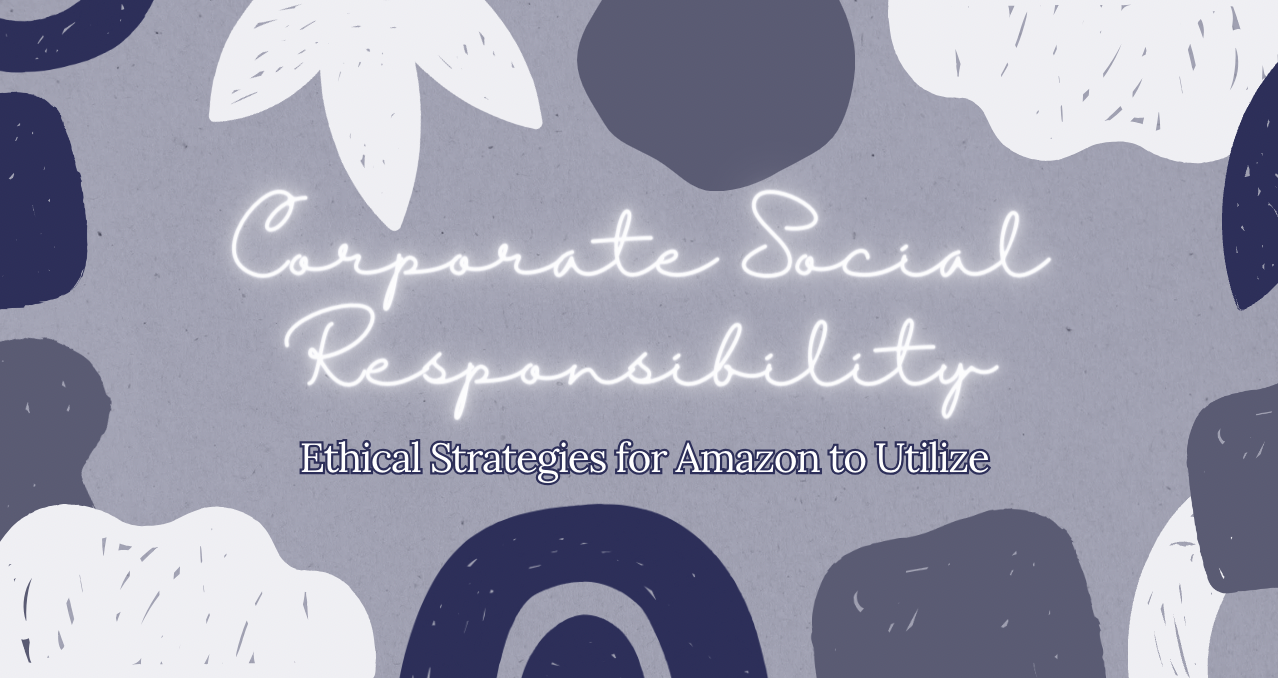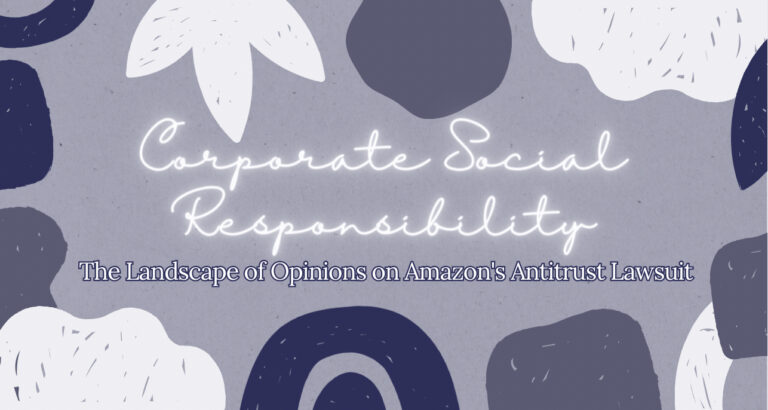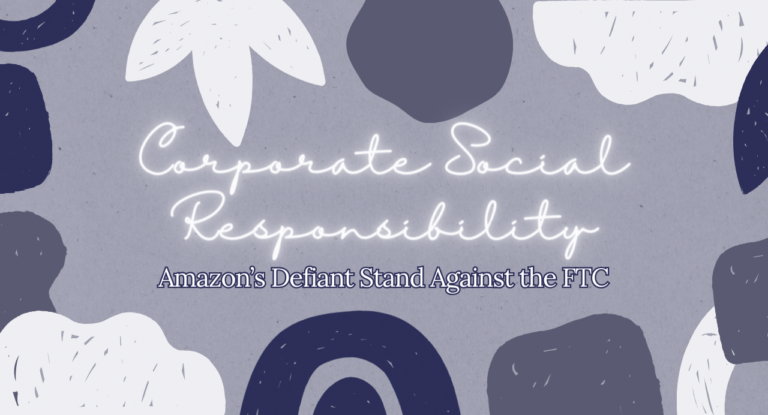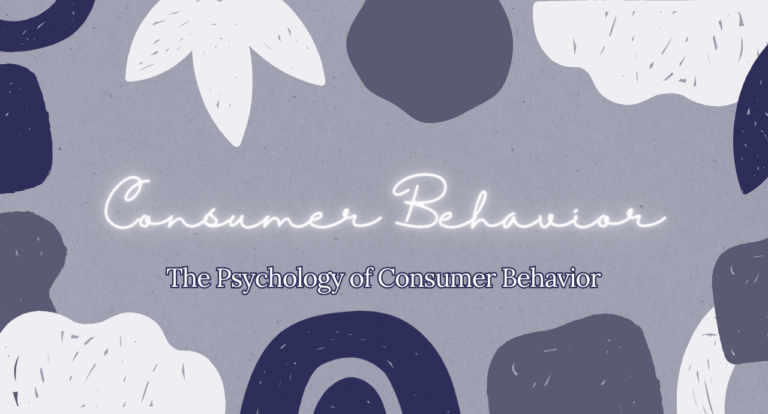Ethical Strategies for Amazon to utilize
What can Amazon Do?
Amazon’s resolute stance on the issue indicates their commitment, signaling a strong defense against the Federal Trade Commission (FTC). They show no inclination to give-in easily.
communication
Because of this attitude towards the issue, I think it is beneficial for them to do as such, stand aside their brand and values with conviction. But I feel as if there is one aspect of corporate social responsibility (CSR) they must be cautious of, communication.
We live in a digital world that facilitates feedback from consumers and stakeholders alike. They should understand that regardless of what they do, there will be individuals and organizations with opinions. By being proactive with the issue I think they will be able to avoid any negative impact of this structure. As this investigation is still in progress, Amazon may want to consider a press release or something in similar nature. They have already produced an official public statement, but directly addressing the concerns, allows for proof of Amazon’s confidence.
Amazon should openly communicate amid FTC’s suspicions, emphasizing ethical practices to reassure consumers, stakeholders, and sellers.
Stakeholder Autonomy
While Amazon has responsibility to their actions, the principle of autonomy comes into play. This theory essentially claims that people, consumers, have a sense of intrinsic value. Meaning, they are conscious, rational, and free to act on universal values. Consumers have the ability to collect information about a situation and make a decision.
The key point: we have the ability to recognize and act upon universal principles that we have accumulated knowledge about. Put simply, we know when things are right or wrong and have the autonomy to make decisions for ourselves based on this principle. Meaning, stakeholders have the tools to be informed about Amazon’s business practices and make a decision from that.
So, I do believe this entire situation stems from Amazon. But, they need to be sure they are not being deceitful to these stakeholders as it would make this principle to make a decision, foggy. And if that is the case like Amazon is choosing to claim, then some of the responsibility within this issue, is held by those outside of the company’s office.
Focus on the Outcome
While communication is important to Amazon’s CSR right now, another way to face the problem would be through a teleological ethical framework. Fundamentally, this is a way of analyzing an issue with a focus on the outcome. I think Amazon should keep in mind of what the outcome may be and ensure that is ethically moral. This even extends to utilitarianism: taking the path that results in the greatest good for the greatest amount of people. Amazon could proceed with their fight versus the FTC while keeping the outcome in mind. By doing such, the tech giant is capable of entering the lawsuit, with their stakeholders in mind. Based on their actions in regards to the FTC, Amazon could avoid negative implications for outsider people. This framework allows them to take a course of action which avoids a hinderance to the company, while minimizing the impacts their stakeholders (consumers, sellers, etc.) may experience.
On the other hand, it seems, Amazon would face backlash if they were to consider a deontological framework. Amazon is so confident that their practices are not against the FTC guidelines. Therefore, they should feel that they have already aligned their morals and do not need constant emphasis. This is solely based on how Amazon seems to be approaching the issue. They have conviction in that they have been within the rules this entire time. On paper, Amazon should not be concerned with their morals. Executives make it clear, they don’t think they have done anything wrong. While it is vital for companies to have these ethical mindsets; Amazon presents itself in a contradictory manner with this method of thinking. Situationally, there is a lawsuit in play. If Amazon wishes to avoid punitive damages, they should focus on the outcome. Amazon should organize their information, to oppose the FTC, and go into the fight head-on like they say they want to and just keep in mind what may come out of doing so.
In Summary
Alongside the established business knowledge Amazon has acquired over the years, if they were to take these suggestions, I believe it will result in an outcome relatively beneficial for them. If they keep communication in play, focus on the outcome, and ensure their stakeholders are not hindered by their current practices nor the situation at hand, they will be fine. Based on the gathered information, it’s evident that the FTC is poised to encounter a significant challenge. However, being a regulatory body with a nuanced understanding of antitrust laws, they might uncover additional elements that could catch Amazon off guard.








I agree that communication is very important. I do think it should be improved because if they improve it that indirectly can help them with so many other problems. Awesome point of view!!
Thank you!
I agree that Amazon would greatly benefit by following a theological framework. To make sure that its business and reputation don’t get affected negatively, Amazon needs to act ethically and show proof of that. You make some interesting points about how much of an impact people play in today’s digital world. With social media, people can share their opinions and influence others; Amazon needs to acknowledge this and focus on its communication as you explained. You did a great job!
Thanks! I honestly cannot wait to see the outcome of the FTC’s investigation and lawsuit. As well as, I want to see the impact on Amazon regardless of who “wins” and what may come from that decision that will impact other companies.